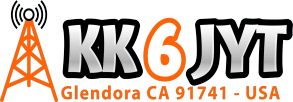One-Way Transmissions
Q: What types of one-way communications are amateur stations authorized to transmit?
Section 97.111(b) provides for one-way communications. In summary, auxiliary, beacon, space and stations in distress are specifically authorized to make certain one-way transmissions. Additionally, an amateur station may transmit the following types of one-way communications:
- Brief transmissions necessary to make adjustments to the station;
- Brief transmissions necessary for establishing two-way communications with other stations;
- Telecommand;
- Transmissions necessary to providing emergency communications;
- Transmissions necessary to assisting persons learning, or improving proficiency in, the international Morse code;
- Transmissions necessary to disseminate an information bulletin; and
- Telemetry.
Q: What is an “information bulletin”?
The term is defined in Section 97.3(b). It is a message directed only to amateur operators and consists solely of subject matter of direct interest to the amateur service. The control operator of the station transmitting an information bulletin is responsible for determining that the subject matter is of direct interest to the amateur service.
Q: Does an amateur station transmitting information bulletins have to share the channel?
Yes. Section 97.101 provides that each station licensee and each control operator must cooperate in selecting transmitting channels and in making the most effective use of the amateur service frequencies. A specific transmitting channel is not assigned for the exclusive use of any amateur station. Section 97.101 also provides that no amateur operator shall cause interference to any radio communication or signal. There is no exemption for amateur stations transmitting for information bulletins.
Q: Is broadcasting prohibited?
Yes. Section 97.113 prohibits amateur stations from engaging in any form of broadcasting or in any activity related to program production or news gathering for broadcasting purposes.
Q: Is there an exception to this prohibition?
Yes, there is one exception: Communications directly related to the immediate safety of human life or the protection of property may be provided by amateur stations to broadcasters for dissemination to the public where no other means of communication is reasonably available before or at the time of the event.
Q: What is “broadcasting”?
Section 97.3 defines the term “broadcasting,” in the context of the amateur service, as a transmission intended for reception by the general public, either direct or delayed.
The part (I hear) where people almost always violate the rule(s), is when they give out their website URL. Giving out the URL to your website is fine if the website “consists solely of subject matter of direct interest to the amateur service”. I heard someone give out a skydiving website that has absolutely nothing to do with HAM radio when I checked it.
HINT: Don’t give out the website until someone responds to you. Then it’s not a one way transmission anymore.
I’m willing to bet that guy was the owner (or his friend is the owner) of the skydiving website/business. And, we all know about using the HAM frequencies for business / commercial use …. a big no-no.

Reserved.